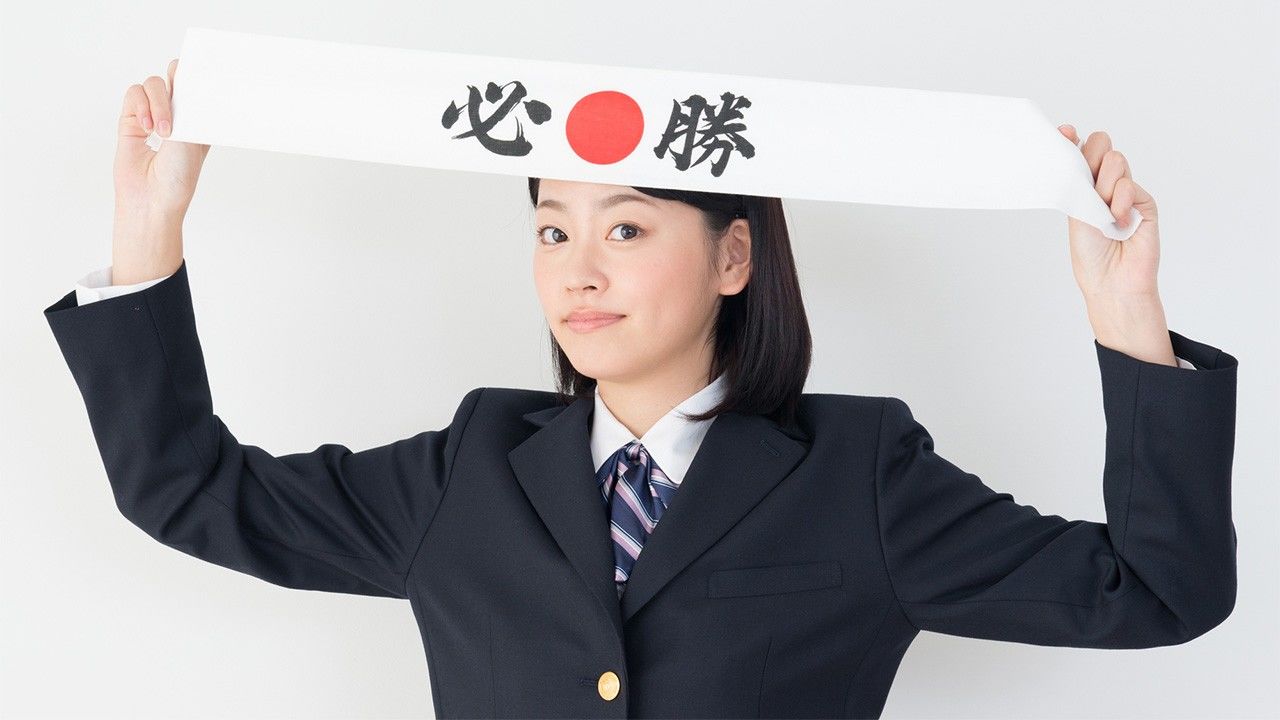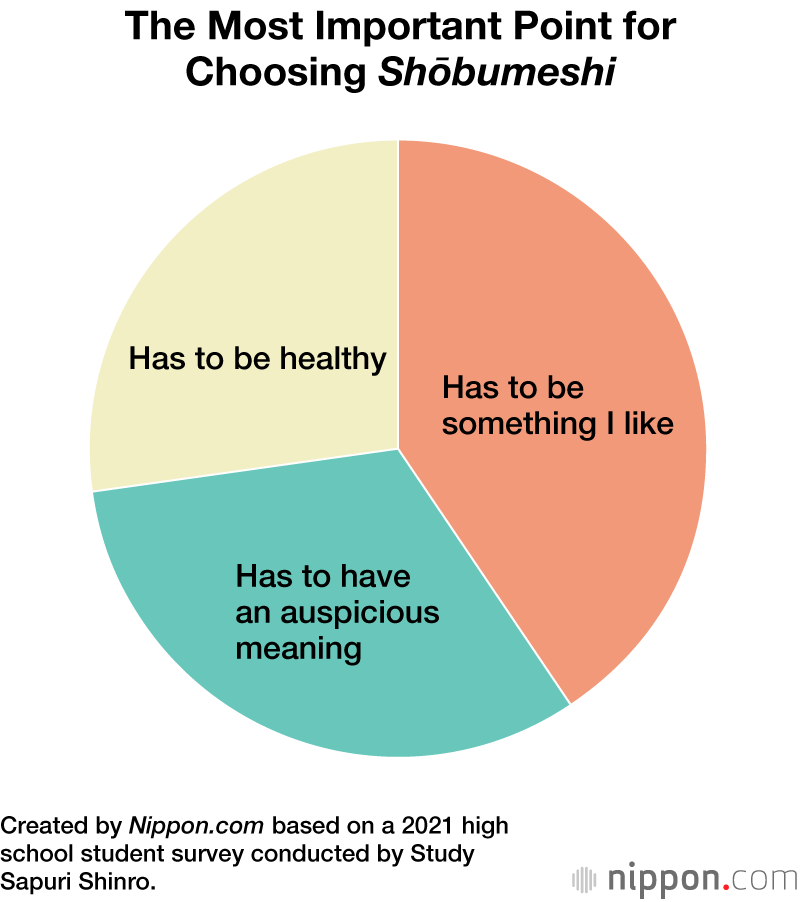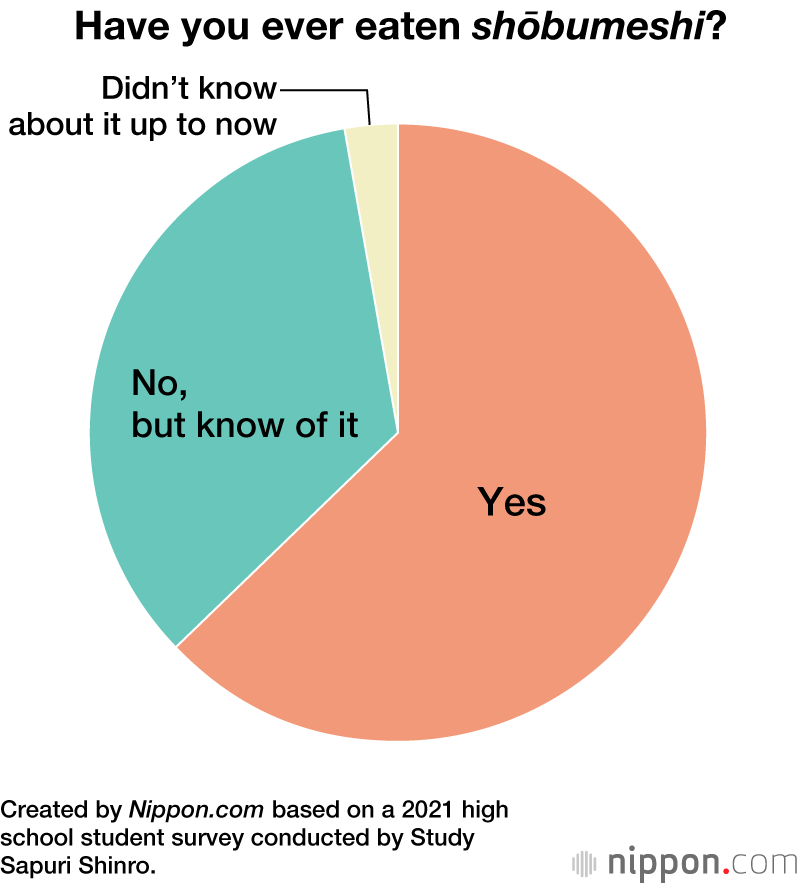
“Shōbumeshi”: Good Luck Meals for University Entrance Exams
Society- English
- 日本語
- 简体字
- 繁體字
- Français
- Español
- العربية
- Русский
In a survey conducted by Study Sapuri Shinro, a Recruit Group service company providing information to high school students for university entrance exams, participants were asked to state their idea of “shōbumeshi,” a meal eaten before an important exam to bring an extra bit of good luck. The survey, held online in November 2021, targeted 500 high school students nationwide and the most common response was katsu, or pork cutlets, the name for which has the same sound as the Japanese word for “win.” At 81.8%, this meal placed top out of all the multiple responses possible.
Omusubi, or rice balls, placed second with 11.2%, as the name evokes the phrase en o musubu or “making a good connection.” Tai, or sea bream, was next with 10.8%, due to it sounding like part of the word medetai, meaning “auspicious.” Nattō came close behind at 10.6% because its stickiness is associated with nebarigachi, meaning to “win through persistence.” Meanwhile, others chose foods such as ramen (7%) and sukiyaki (6.6%).
What is your image of shōbumeshi? (%)
| 1 | Pork cutlets (katsu; suggests shōbu ni katsu or “win the competition”) | 81.8 |
|---|---|---|
| 2 | Rice balls (omusubi; suggests en o musubu or “make a good connection”) | 11.2 |
| 3 | Sea bream (tai; suggests medetai or “auspicious”) | 10.8 |
| 4 | Nattō (suggests nebarigachi or “winning through persistence” due to the stickiness of the fermented soybeans) | 10.6 |
| 5 | Ramen | 7.0 |
| 6 | Sukiyaki | 6.6 |
| 7 | Bonito (katsuo; suggests katsu or “winning”) | 5.4 |
| 8 | Weiner sausages (similar in sound to “winner”) | 5.2 |
| 9 | Chikara udon noodles (a dish including sticky mochi that suggests gaining chikara or “power” through persistence) | 4.8 |
| 10 | Nabe hot pot | 3.4 |
Created by Nippon.com based on a 2021 survey conducted by Study Sapuri Shinro.
At 40.8%, the most important point students focused on when choosing their shōbumeshi was it “has to be something I like.” This was followed by 32.2% who felt their meal “has to have an auspicious meaning” and 27.0% saying it “has to be healthy.”
Asked if they had ever eaten shōbumeshi, 63.0% of participants said “yes,” while 34.4% responded “no, but know of it.” With only 2.6% replying that they “didn’t know about it up to now,” the survey revealed that most knew about dishes believed to boost confidence and good luck. Overall, 74% indicated they want to eat shōbumeshi.
For 30 years up to 2020 when it was abolished, the National Center Test for University Admissions had been the main university entrance exam. This was replaced from January 2021 with the Common Test for University Admissions. According to the National Center for University Entrance Examinations website, the number of people who took the 2021 Common Test for University Admissions was 484,114, a drop of 43,000 from the final National Center for University Entrance Examinations that was held in January 2020. Applicants wanting to take the January 2022 Common Test fell by 4,878 from the previous year to 530,367.
(Translated from Japanese. Banner photo © Pixta.)

